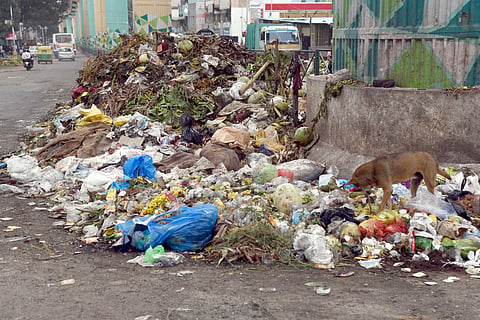

VIJAYAWADA: Kakinada and Vijayawada have found a place in the Niti Aayog’s report on “Waste-wise Cities: Best practices in municipal solid waste management.” Bobilli has also secured a place for its best practices in Biodegradable Waste Management.
According to the report, while Vijayawada has evolved an efficient mechanism in collection, transportation and treatment of municipal solid waste (MSW) under its ambit, the advanced technology and web-based solutions have helped the Kakinada Municipal Corporation to set up a state-of-the-art monitoring system for overseeing waste management operations and reducing the number of complaints.
Municipal Commissioner V Prasanna Venkatesh explained that the VMC has divided human settlements in the city into 1,256 micro-pockets, each with a different road length so that biodegradable and non-biodegradable waste can be collected separately. All 64 wards in Vijayawada currently have source segregation.
Around 516.6 ton per day (TPD) of municipal solid waste is generated (excluding construction and demolition waste), of which, approximately 275.5 TPD is biodegradable waste, 239.9 TPD is non-biodegradable while 1.16 TPD is domestic hazardous waste (including sanitary waste). Around 2 ton is floral waste from two major and 10 minor shrines in the city.
The biodegradable waste is used to produce compost and other materials of commercial value through various service providers such as waste composting units, waste recycling units and biomethanation units.
Floral waste is collected from wholesale markets, temples, mosques and churches across the city and shifted to composting yards for segregation. It is then turned into bio-compost.
Prasanna Venkatesh observed that the source segregation and efficient collection of MSW by the sanitation workers placed Vijayawada in the NITI Aayog report.
In 2015, the civic body began looking at technology options to strengthen its solid waste management operations.
Technologies for source segregation, door-to-door collection, attendance and timely arrival of sanitation workers were introduced after careful consideration of their efficiency. The civic chief added that a real-time monitoring unit at the city-level and timely course-correction measures were also considered.
Bobbili processes 100% biodegradable waste
Bobbili municipal commissioner S Srinivasa Rao said, “We established a solid waste management plant in 2010. We receive at least 18 tons of waste from the 14,000 households per day. Of the total, eight tons is wet waste. We extract compost using Windrow and Vermin composting methods for biodegradable waste. We also extract gas from wet waste. We extract the recyclable and reusable materials like plastic, paper and cotton from the dry waste and sell it. With all the support of the higher officials and citizens, we have achieved 100 per cent processing of biodegradable waste.